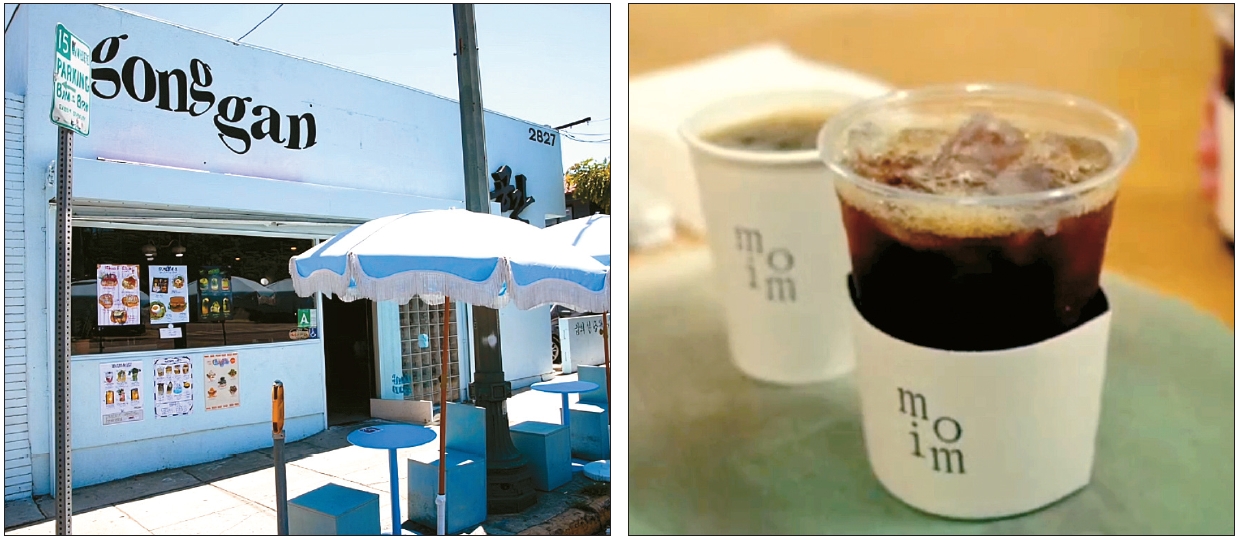In Los Angeles, Korean American–run cafés are moving beyond Hangul as a written form, transforming Korean words and their meanings into English-brand identities that communicate cultural emotion and design sensibility.

These businesses maintain a distinctly Korean character while appealing to English-speaking customers, achieving a balance between approachability and authenticity. For many Koreans, the names themselves carry pride and creativity — a linguistic expression of identity and connection.
In Silver Lake, Gonggan derives from the Korean word “공간,” meaning a space where emotions and people come together. Rather than translating it simply as “space,” the café retains the phonetic “Gonggan” to convey warmth and presence. Its description reads: “a place to fill the empty spaces of life,” with drinks featuring Korean-inspired flavors such as black sesame lattes and Jeju green tea.
Ondo Coffee, named after the Korean word “온도” (temperature), uses a refined transliteration to evoke the warmth a cup of coffee brings. The phonetic spelling captures both sensory comfort and design elegance, merging Korean emotional tone with accessibility.
Moim Coffee, from the Korean word “모임” (gathering), emphasizes community and connection. The café introduces itself as a cultural meeting place where baristas and customers share a collective experience over coffee.
By preserving original Korean pronunciation rather than translating literally, these names intrigue non-Korean customers while naturally conveying their deeper meaning. Each name functions as both a cultural signature and a storytelling device, expressing the brand’s philosophy and identity.
An industry insider said such Hangul-inspired English brand names serve as bridges between cultures — tools that highlight brand identity and help LA cafés and small businesses share the depth of Korean language and emotion while enhancing Hangul’s cultural value.
This story is the second in a three-part series on Hangul and branding.
BY HOONSIK WOO [woo.hoonsik@koreadaily.com]



